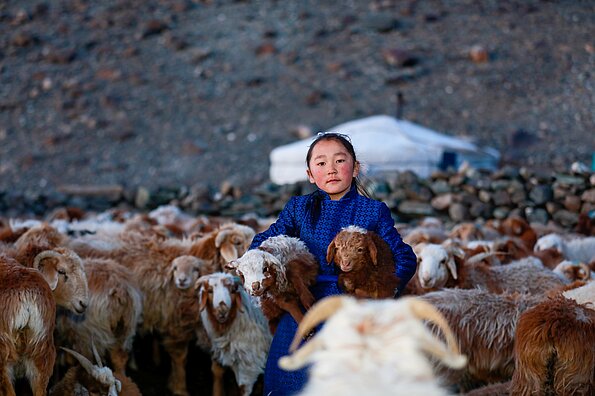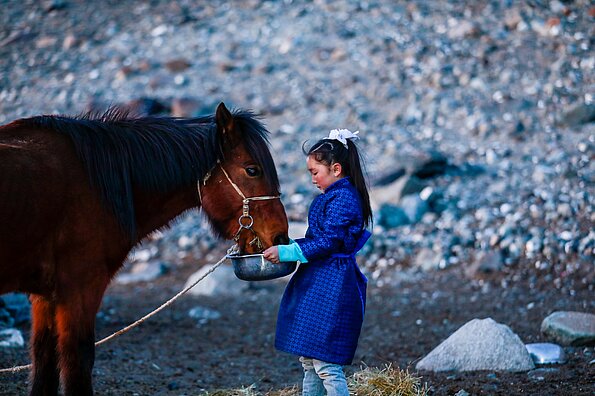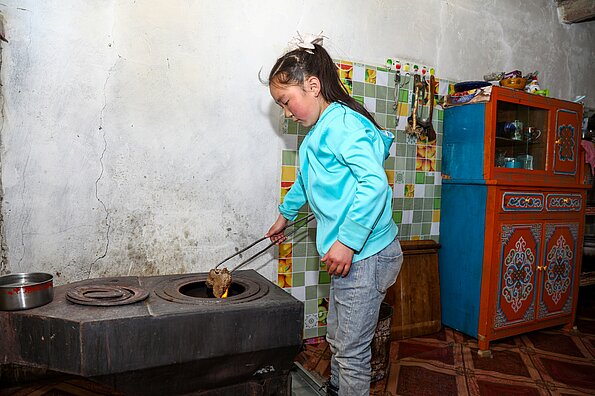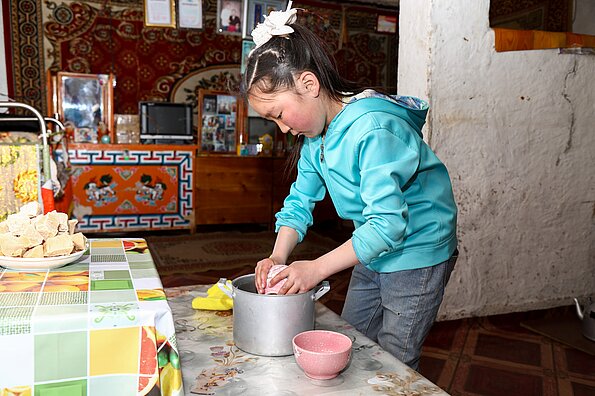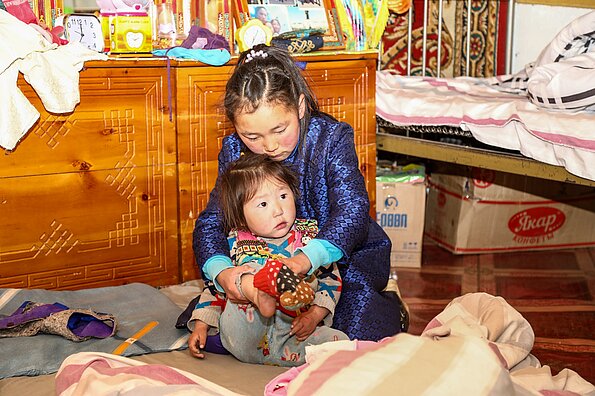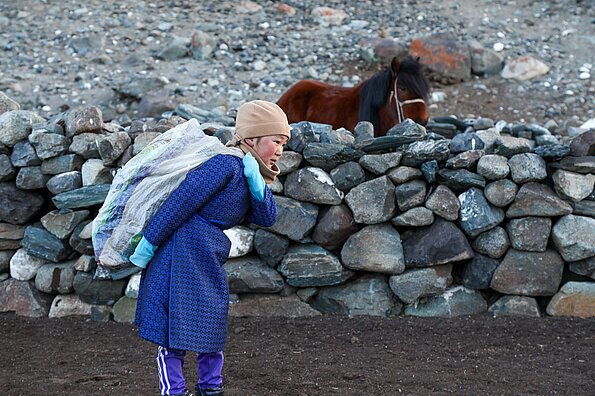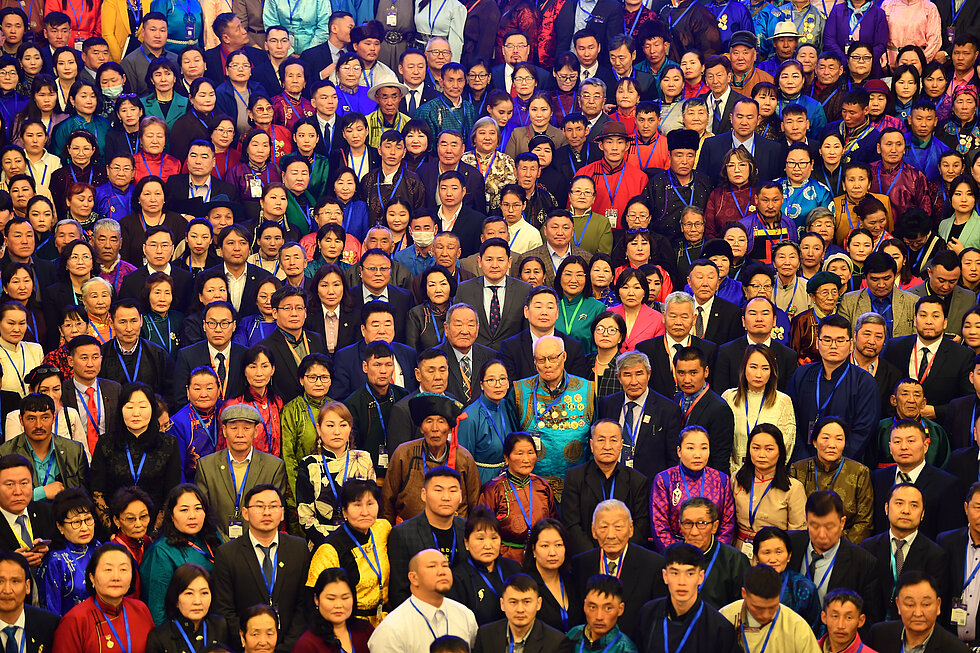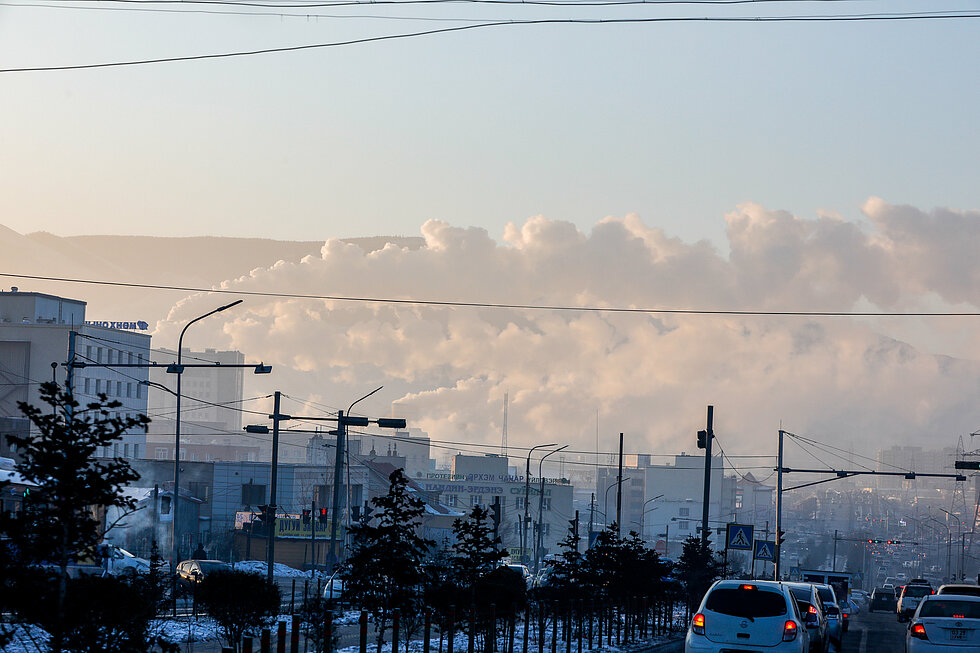From dreams to goals
Photos and story by Batbold Yondonrenchin
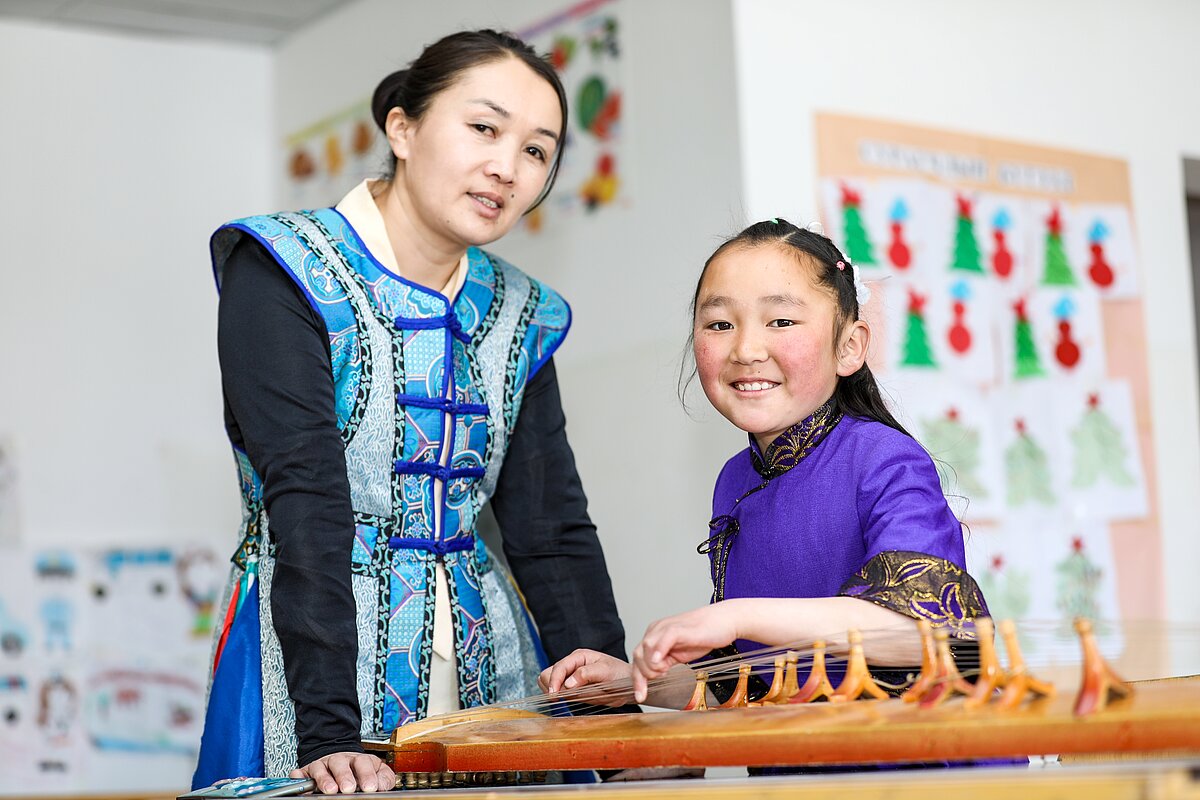
This is Ulaan Khad (‘Red rock’) bag, Altai soum, Bayan-Olgii Province, on the border of Mongolia and China, 2000 km from Ulaanbaatar. More than 90 families and 52 school-age children live in this area.
Bags are the smallest administrative unit in provinces/aimags of Mongolia outside Ulaanbaatar, the capital city. The secondary administrative units are called soums, while the country’s 22 aimags, along with the capital city, form the primary units.

Roads and communications are quite challenging, and sometimes it takes 10 hours to cover the 70 km from the centre of the bag to the Altai soum.
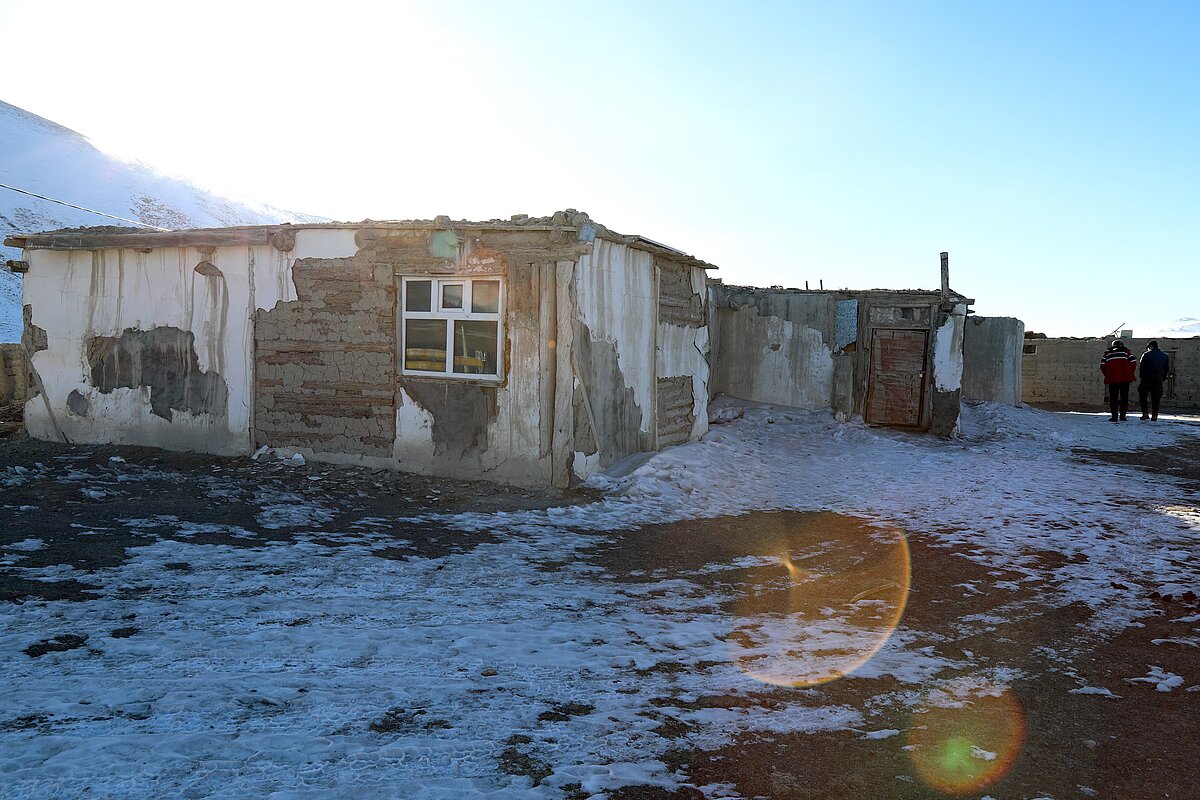
In the year of 2003, with the support and donations of local elders, Ulaan Khad’s school has been launched with two classrooms, one kitchen, 66 students, one teacher, one fireman and one watchman.
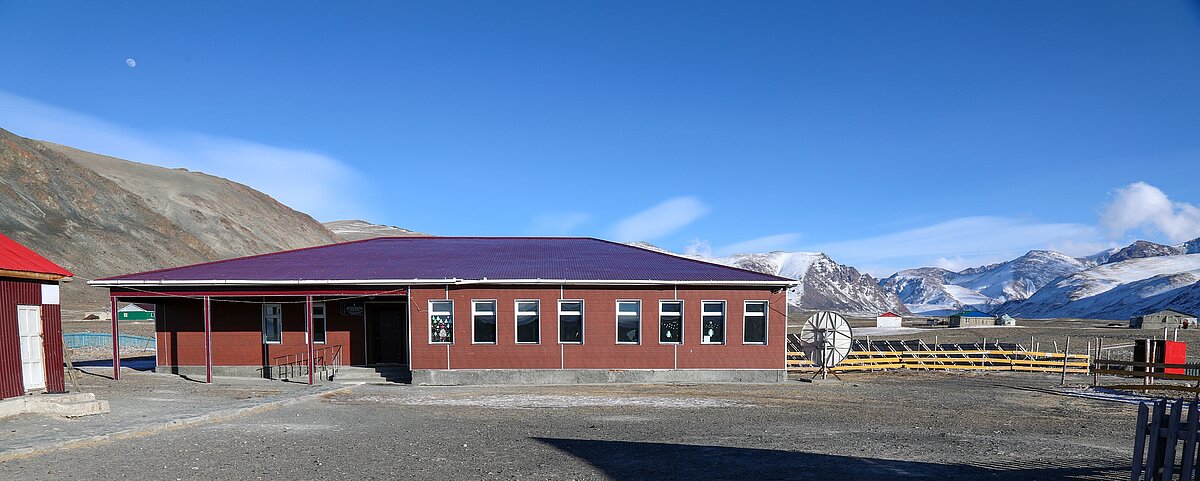
The school now has a capacity of 80 children, has a total area of 380 square metres, and is a boarding school with renewable energy.

Thanks to the efforts of school director Gereltuya, who like many Mongolians goes by only one name, the school is steadily advancing although there are still many obstacles.
Beside its donation towards the building of the school, the Swiss-based organization La Mensa e il gregge implemented another project to solve electricity, energy and other problems, and provided solar generators, kitchen appliances, tables and chairs.
Also, Gereltuya's parents, siblings, relatives, and the kind people of Adyaamunkh and Uugantsetseg generously helped and supported the interior decoration work.
Not all families in Ulaan Khad can afford to send their children to schools in Altai or provincial schools. Today, more than 40 of the children attending the primary school of Ulaan Khad are from impoverished families.

“One needs to have dreams. That way, one can find a way to achieve them and work hard to reach one’s goal.” - Gereltuya
It takes a lot of time and effort to teach reading and writing to children who enter school directly without attending pre-school preparation. The state's policy on education is regulated by pre-school education. Six-year-old children come here who have never held a pen, pencil, or paper, and cannot distinguish between different colours and shapes, because they have not attended kindergarten. The school teaches tirelessly those children to write for more than a month. Also, it is clear that placing young children in a boarding house who have never been away from their parents, who have not yet left their mother's lap, to feed them, to socialize them, requires even more attention and even more work. When children are not hungry or thirsty and their living environment is comfortable, they are less likely to miss their home and parents, so the school pays close attention to the food and environment.
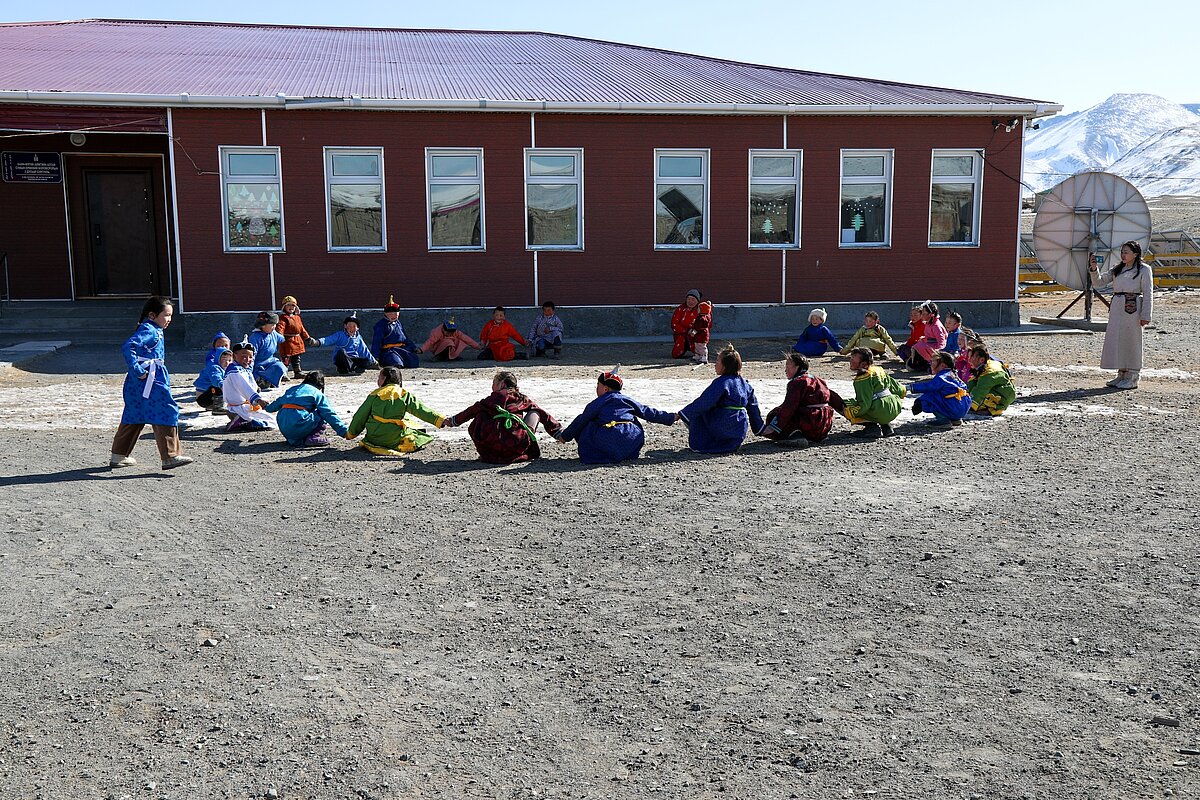
The children at Ulaan Khad boarding school seemed more content and overjoyed.
This is Mungunzul. She is a member of a herder family about 6 km away from the school, where she lives with her parents and two younger siblings.
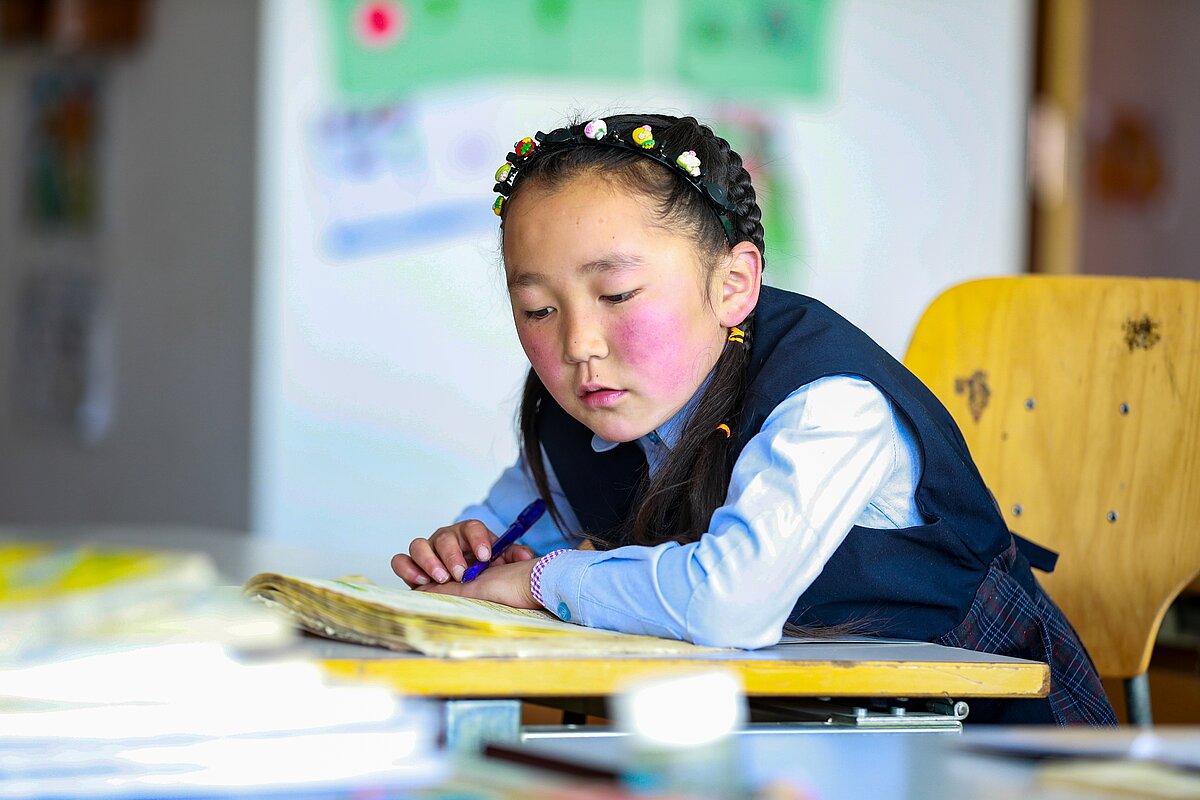
In addition to studying diligently, Mungunzul takes care of her younger siblings, the livestock, and collects dung for fuel.
To get to school she sometimes rides on horseback,
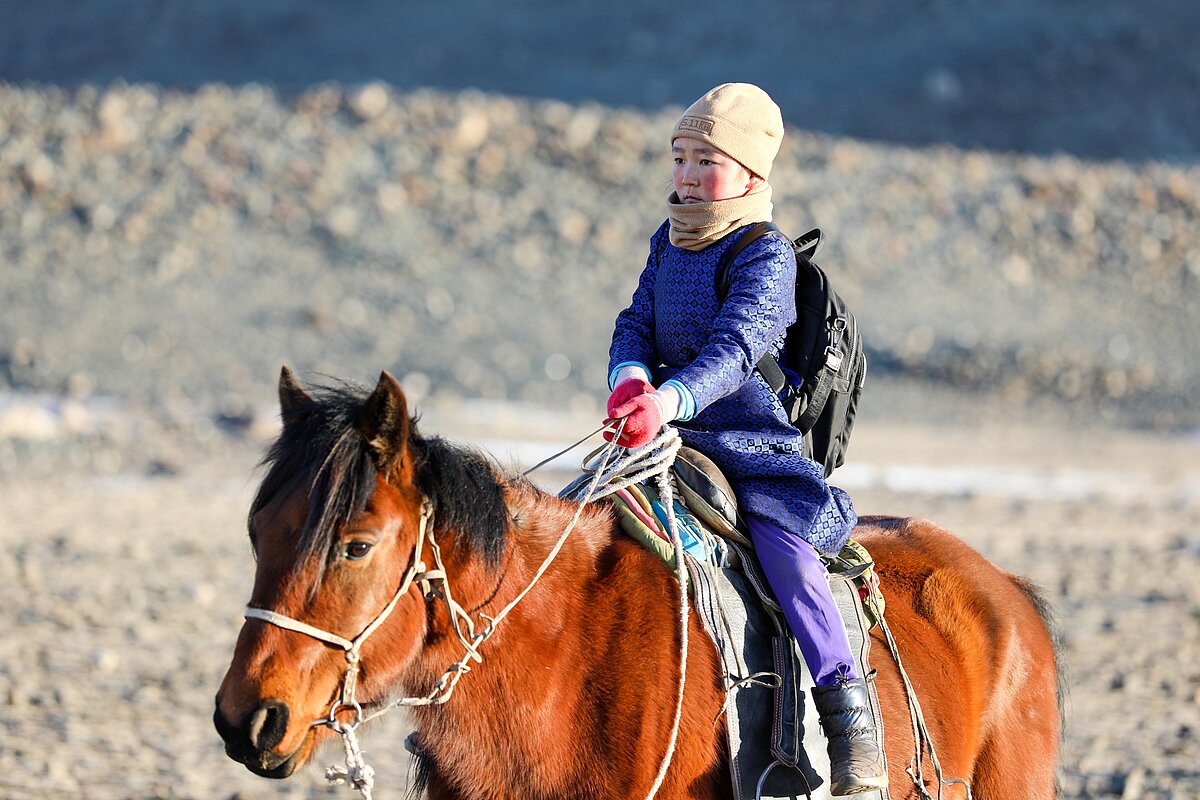
sometimes with her father by motorcycle,
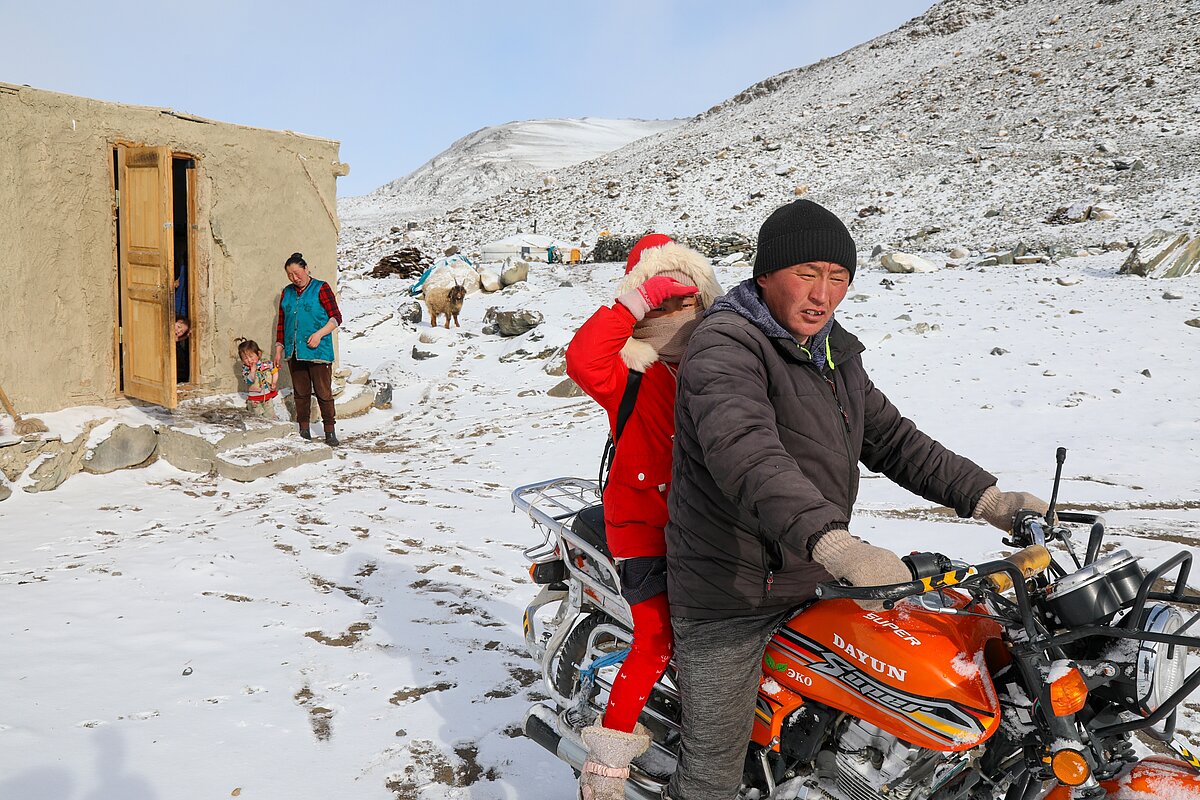
but mostly she walks alone.
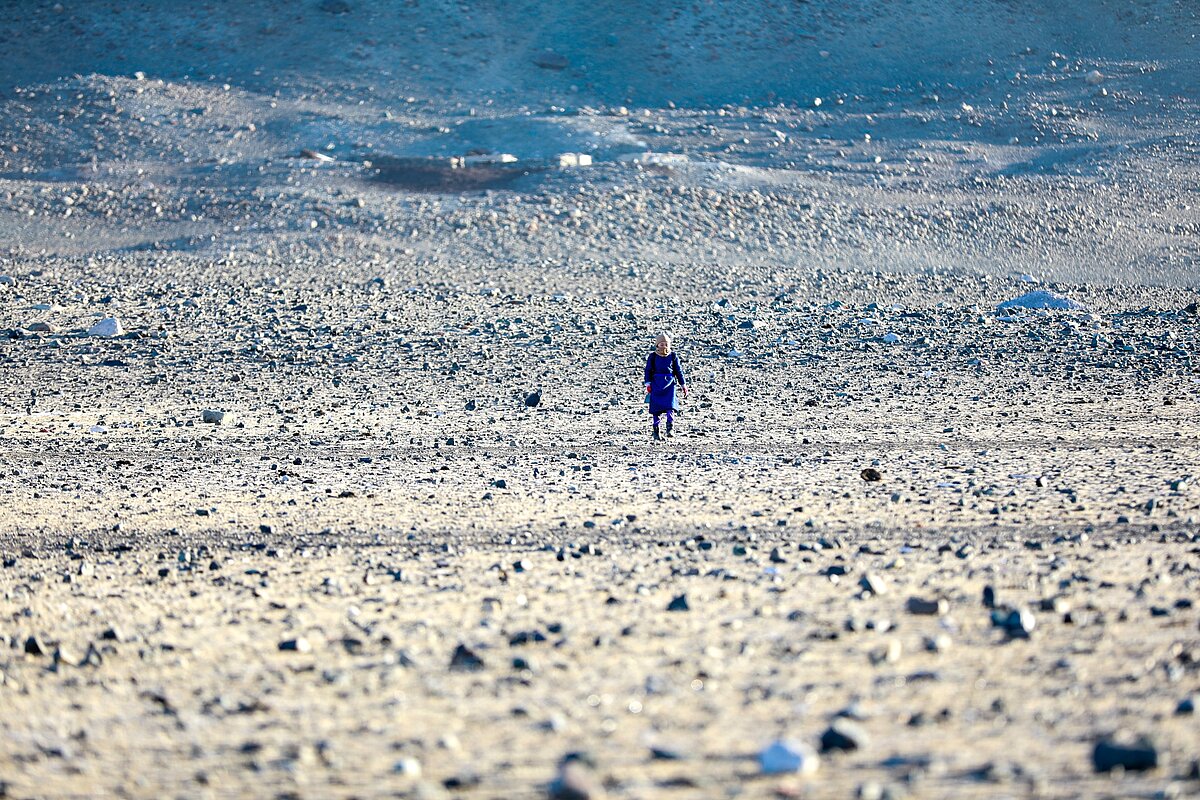
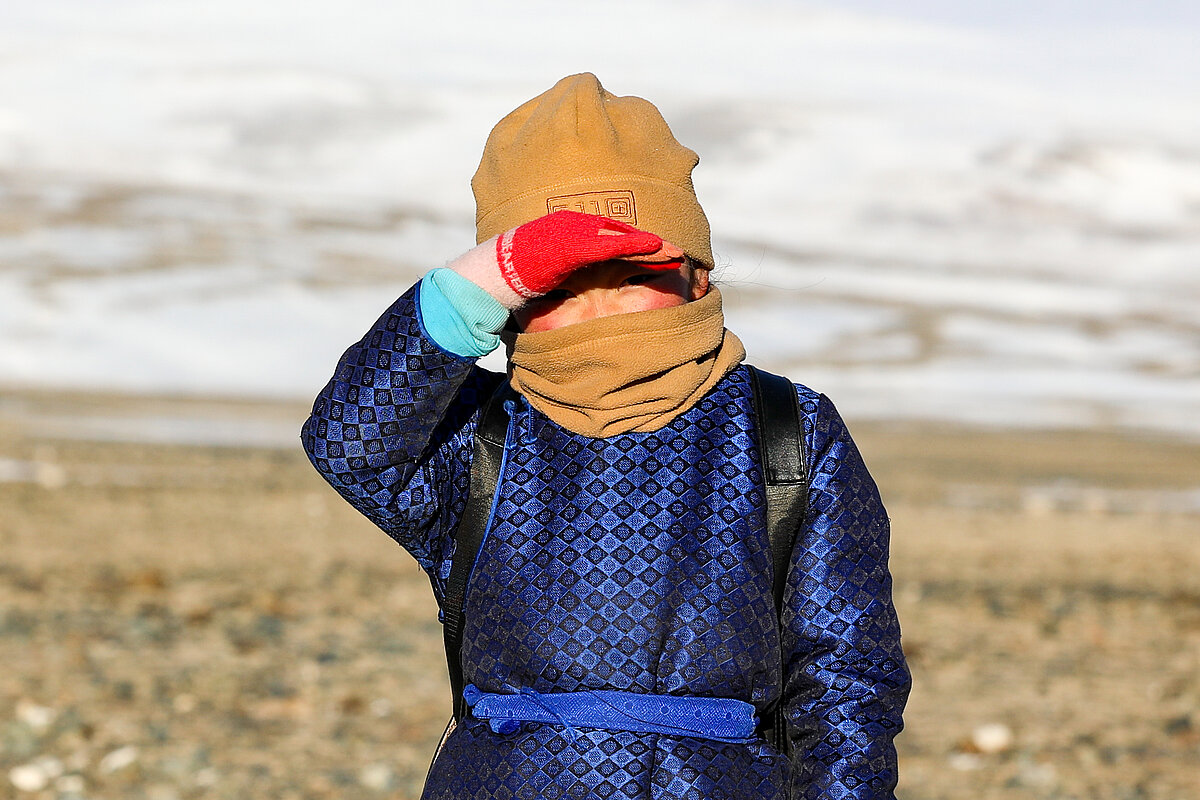
In terms of education, children should know their traditions well and be proud of them. In this regard, Gereltuya said that in addition to constantly teaching children dances, folk tales, songs, proverbs, and folk games to develop their minds, they also pay attention to learning to respect and listen to others.
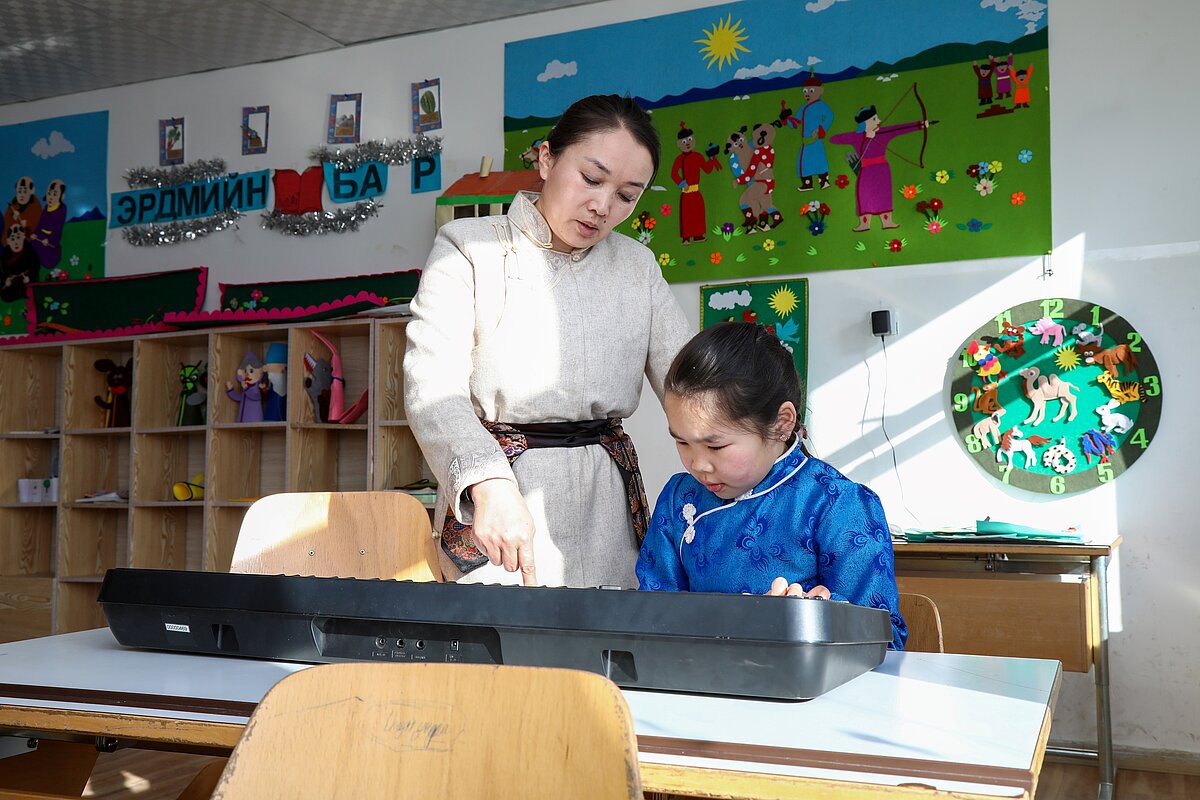
Since it is a remote area, there are few people who come here to work. The school lacks teachers and staff, who constantly change. People compete to get a job in schools in the soum and provinces, but here, on the contrary, employers reach out to potential staff. Gereltuya asked and hired three of her former high school students, who have recently earned their bachelor degrees and are now back at hometown, to work as teachers. Even if they are non-professionals, she has no choice. Of course, they cannot work at the level of a professional teacher. However, there is no choice. As of today, in addition to the director, there are five teachers, one fireman, and one watchman, and there are five classes from grades 1 to 5. Despite holding the position of director, Gereltuya is responsible for many tasks such as social worker, music teacher, English teacher, and secretary.
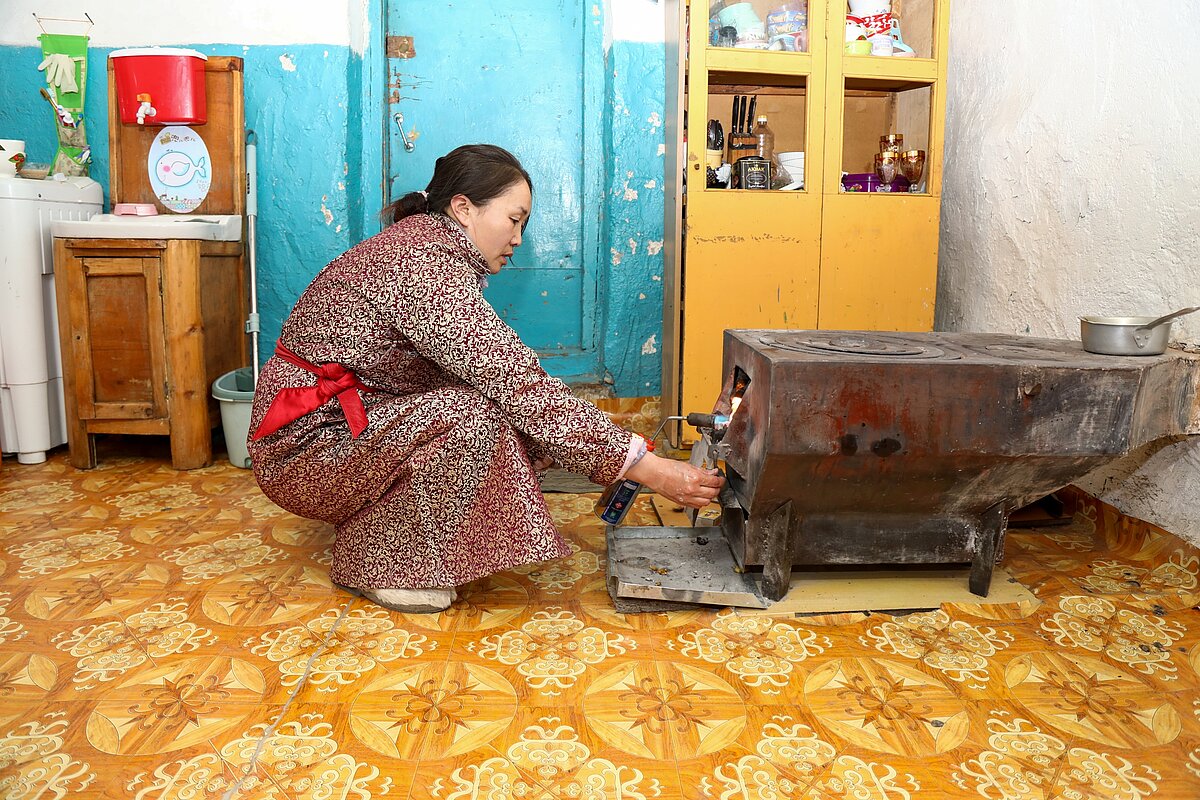
“My family is more important than anything else. In order to create something, we have to sacrifice another thing.” - Gereltuya
Behind all this work, her husband helps in every way voluntarily and without pay. He handles many tasks such as loading and unloading firewood, building fences, repairing and watering. Due to the law on conflict of interest, her husband cannot be officially employed by the school, so they have to live off Gereltuya's salary alone. Gereltuya has undergone two operations, she has a tumour on her back, and she has to go to the capital city for treatment during her regular vacation. Furthermore, her eldest daughter is about to enter the university. So she has a lot of financial problems, such as paying for education. There are opportunities for both of them to take work in more urban areas and improve their economic situation, but they love everything they have built, and they cannot leave it.
With 10-12 beds in each room the dormitory does not have enough space for tables, where children sit at in routine and do their homework. They go to the school cafeteria to eat, and the toilet is outside, so it is cold when there is a snowstorm or rain. It is very difficult to get out. Also, because there is no gymnasium and no physical education teacher, the work of physical development is neglected. There are many pressing issues of children's rights violations, including the high risk of fire because boarding houses are heated by stoves.
Gereltuya has envisioned the future, re-planned the school, and set a big goal to fully solve the problems she is facing.
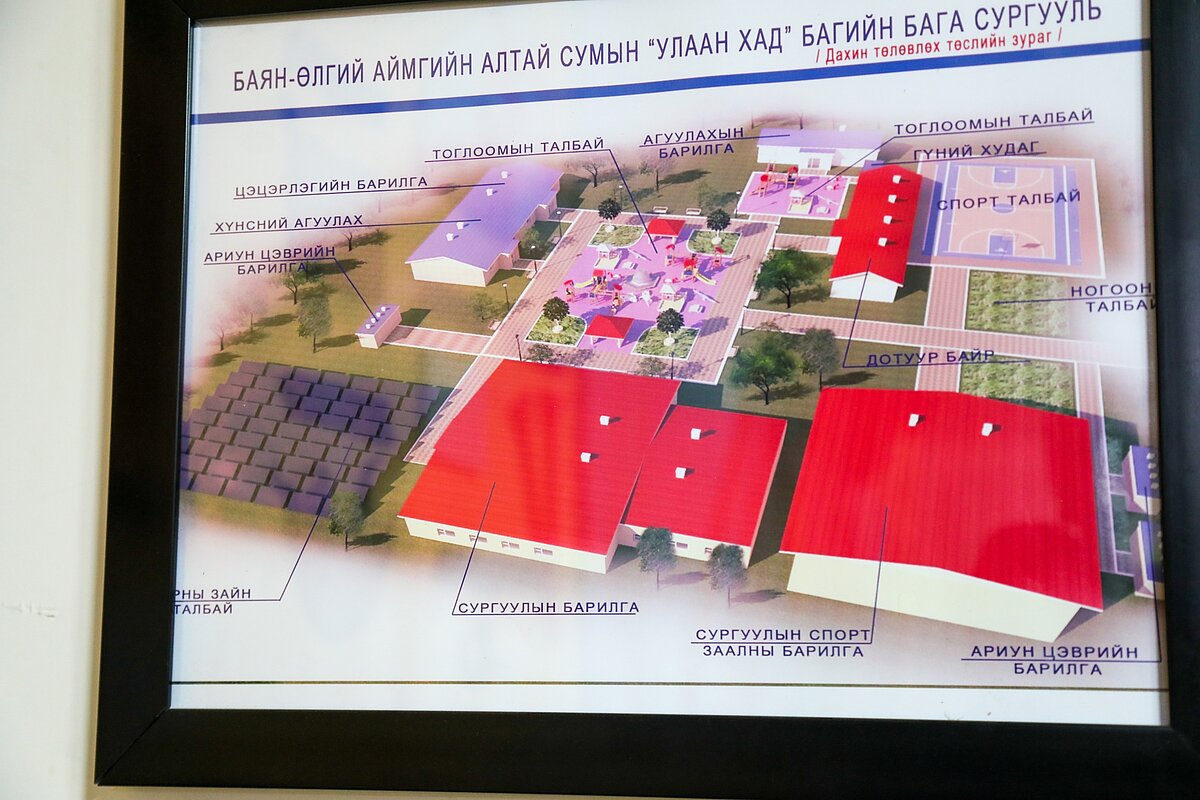
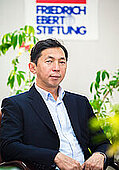
Batbold Yondonrenchin is Secretary at FES Mongolia.
Follow news update from FES Mongolia in the Facebook page.
FES Asia
Bringing together the work of our offices in the region, we provide you with the latest news on current debates, insightful research and innovative visual outputs on the future of work, geopolitics, gender justice, and social-ecological transformation.



